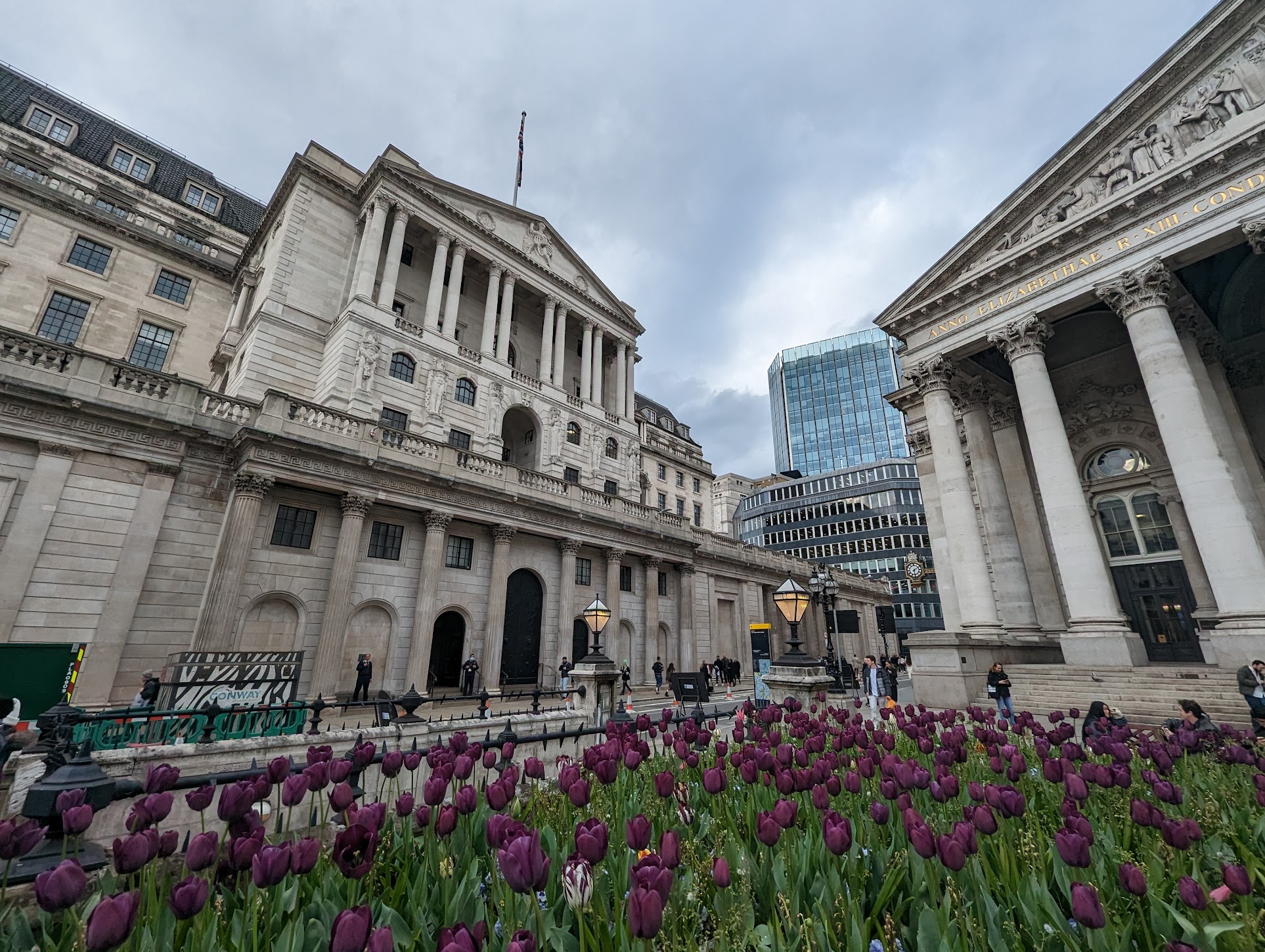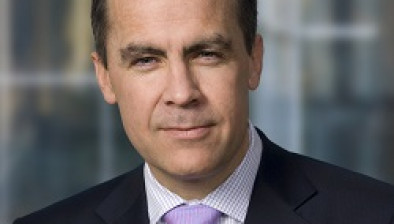Bank of England cuts rate to 4% in knife-edge vote

The Bank of England building (credit: George Iordanov-Nalbantov)
The Bank of England (BoE) has reduced the base interest rate to 4%, but a deep split among policymakers has signalled that the current cycle of reductions may be nearing its end.
The decision was so contentious that the Monetary Policy Committee (MPC) had to hold two rounds of voting for the first time in its history. Governor Andrew Bailey and four colleagues ultimately backed the quarter-point cut from 4.25%, but only after four members voted to keep rates on hold, citing worries over high inflation. Notable dissenters included Deputy Governor for Monetary Policy, Clare Lombardelli, and Chief Economist, Huw Pill.
The committee is grappling with conflicting risks. While the UK jobs market is weakening, the BoE has revised its inflation forecast upwards, now expecting it to peak at 4% this autumn. It does not foresee inflation returning to its 2% target until the second quarter of 2027, later than previously forecast.
Governor Bailey described the decision as “finely balanced”, telling a press conference, “it remains important that we do not cut Bank Rate too quickly or by too much”. He stressed that any future cuts would need to be “gradual and careful”.
The close vote and cautious tone prompted a sharp market reaction. Sterling jumped against the US dollar, while UK government bond yields rose and stocks fell. Investors have significantly trimmed their bets on another rate cut by the end of 2025. Economists at firms including KPMG UK and RSM UK suggested this could be the final rate cut of the year.
The potential halt to monetary easing would be a blow to the UK government, which is relying on lower borrowing costs to help meet its promises to accelerate the UK’s slow economic growth.
Scottish Friendly savings expert Kevin Brown said: “There remain concerns over the persistency of price rises, particularly in areas such as food, energy and labour costs. Nevertheless, prices are expected to drop in the latter half of 2025 and into 2026.
“The interest rate cut had been widely anticipated and is therefore likely to be reflected in government bond markets already. Mortgage rates had already been coming down and are unlikely to move significantly lower as a result.
“However, the cut may have an impact on savings rates and should be a catalyst for savers to shop around for the best rates to ensure their cash holdings are outpacing inflation.”
Looking at how today’s cut affects property, Rajan Shori, head of real estate England at law firm Gilson Gray, said: “A timely step towards restoring real estate and property market confidence and unlocking delayed capital deployment but with the cut already baked into markets, all eyes will be on how far and fast the Monetary Policy Committee will cut rates further in line with the Governor’s ‘gradual and careful’ stance which in turn will depend almost entirely on the jobs market.”







